2/21/2016: And you thought those $400K campaign contributions Kitzhaber got smelled bad? ESPN has the latest here:
… Sunday Times sportswriter David Walsh, renowned for his coverage of cycling champion Lance Armstrong’s doping, reported that Nikita Kamaev wrote to him in November offering to reveal information on doping covering the past three decades since Kamaev began work for a “secret lab” in the Soviet Union.
Ramil Khabriev, Kamaev’s former boss at RUSADA, told Russia’s Tass agency that Kamaev planned to write a book but abandoned it because an “American publisher” had demanded too much influence over its contents.
Kamaev died Feb. 14 at age 52 of what RUSADA called a massive heart attack.
In Walsh’s account, Kamaev was quick to contact The Sunday Times after a World Anti-Doping Agency commission accused RUSADA of helping to cover up doping by top Russian athletes as part of a systematic, state-sponsored program of drug use.
According to the newspaper, Kamaev said he had collected unpublished “documents, including confidential sources, regarding the development of performance enhancing drugs and medicine in sport” plus communications with the Russian Sports Ministry and International Olympic Committee. It is not clear whether Kamaev ever provided any documents. …
2/19/2016: Everyone will get a cut of IAAF hotel tax pork – except UO’s academic side
The RG’s Saul Hubbard has more here:
SALEM — Backers of an increase in Oregon’s hotel-room tax have slightly scaled back and tweaked their request, to win support from hesitant lawmakers in the state House.
The tax increase is being sought, in part, to generate money for a $25 million subsidy request for the 2021 World Track and Field Championships in Eugene.
The House was scheduled to vote on the bill, HB 4146, on Friday. But instead the bill was sent back to committee for changes, after it became clear that there weren’t enough votes in the chamber to pass it.
There’s been little outright opposition among interest groups or lawmakers to helping pay for the Eugene track championships, which will cost far more to stage than they can bring in in ticket and other marketplace revenue.
But Portland-area government agencies are lobbying hard for a smaller increase in the state lodging tax, to leave themselves room to increase their own local hotel tax. Other regions meanwhile are seeking a bigger share of the proposed new statewide tax revenue. …
2/15/2016: Oregon Legislature can’t decide how many millions in tax money to give corrupt IAAF and Track Town’s $850K Lananna
The House Revenue Committee amends Rep. Nancy Nathanson’s IAAF/Track Town subsidy bill with some minor qualifications, and then sends it on to the House floor, on a close vote. Presumably they’ll figure out how to spread the Hotel Tax pork around enough to get this passed.
Here’s hoping Lord Seb Coe’s IAAF can keep any more news about soliciting bribes from Putin’s friends to cover up doping by Russian athletes or using brown envelopes and Rolexes to decide who gets the IAAF championships out of the papers for a week or two. Speaking of which, a second figure in Russian scandal has just died unexpectedly. The Guardian has more here.
Meanwhile the UO Board meets on Thursday to vote on using eminent domain to prepare the way for rebuilding Hayward Field in the style to which the Duck Athletics Department has become accustomed. And UO’s Public Records Office is still sitting on many requests for documents about the deal, including this one from the BBC, back on December 2:
Requester: McKay, Calum
Organization: BBC
Initial Request Date: 12/02/2015
Status: Requesting/Reviewing Records
1) All records used, generated, sent or received by the following people: University of Oregon Associate Athletics Director, University of Oregon Associate Vice President for State and Community Affairs, and CEO of the University of Oregon Foundation.
Including but not limited to emails, letters, reports, text messages, records of meetings and other communications, which match the following search terms: Nike, Coe, Seb, TrackTown, Track Town, TTUSA, IAAF, 2021, Masback, Capriotti, Fasulo, Lamine, Diack, CSM, Jackie AND Brock AND/OR Doyle
2) All records used, generated, sent or received by the following people: University of Oregon Athletics Director, University of Oregon Board Chairman, former University of Oregon Interim President, current University of Oregon President and University of Oregon Associate Director of Events Administration Athletics.
Including, but not limited to emails, letters, reports, text messages, records of meetings and other communications, which match the following search terms: Nike, Coe, Seb, TrackTown, Track Town, TTUSA, IAAF, 2021, Masback, Capriotti, Fasulo, Lamine, Diack, Vin, Lananna, CSM, Jackie AND Brock AND/OR Doyle
The period of this request covers from 18 November 2014 until the present.
2/11/2016: They’ll figure it out today at 1PM: https://olis.leg.state.or.us/liz/2016R1/Committees/HREV/2016-02-11-13-00/Agenda
Saul Hubbard has more on the logrolling, here:
SALEM — Portland government agencies are resisting a proposal to double Oregon’s lodging tax, a potential obstacle for Lane County lawmakers’ efforts to secure a $25 million state subsidy for the 2021 world track and field championships in Eugene.
The objections from the city of Portland, Metro — the Portland area regional government — and Travel Portland have nothing to do with the subsidy for the track event, per se, which they say they support.
Instead, the agencies worry that permanently doubling the state lodging tax, to 2 percent from 1 percent, is too much of an increase, given that local lodging taxes already add up to a combined 13.5 percent on hotel rooms in Portland, the highest of any city in the state.
In the short term, the proposed state increase would put Portland at a disadvantage with other big national cities when it comes to hosting conventions and other group travel, the agencies’ lobbyists argue. Conventions play a key role in keeping Portland hotels full during the winter, they say, and lodging tax rates can influence where organizers choose to go.
The proposal “would harm the state’s ability to continue attracting lucrative convention groups,” Randy Tucker, a lobbyist for Metro, told lawmakers at a hearing this week.
Yes, the DWL of the tax increases with square, as does the political rent seeking cost. But it sounds like our legislature will figure out a way to spread this pork over the necessary 60% of legislators.
2/10/2016: Vintners and presidents for IAAF subsidy, Adam Smith and economists against
Nestle drops IAAF sponsorship over corruption allegations and doping:
The Swiss company, founded in 1905, said in a statement that they were concerned about being associated with the IAAF at the present moment, claiming it “could adversely affect our reputation and image”.
“We have decided to end our partnership with the IAAF Kids programme with immediate effect,” the statement read.
“This is our decision given the negative public perception regarding corruption allegations and doping in sport against the IAAF.
“We believe that this could adversely affect our reputation and image and therefore have terminated the existing contract.
“We have the IAAF informed of our decision and are waiting for a formal confirmation that our partnership has ended.”
2/9/2016: The “Oregon Public University Council” sure sounds public – I wonder if their meetings are? And page down for OSU’s legislative priorities. Way more transparent than what we get from UO’s Hans Bernard, and with a research focus to boot. Meanwhile UO is begging the state to pay for its track meets at the same time we’re complaining that the state wants to meddle in UO’s “everyday workings”:
It’s time for the UO Board to pick one or the other. I wonder what UO had to give up to get OSU President and Economist Ed Ray to sign on to the IAAF championship subsidy legislation?
The latest from the Oregon Legislature includes these endorsements, at https://olis.leg.state.or.us/liz/2016R1/Measures/Exhibits/HB4146.
There are also proposed amendments from the House Revenue Committee that would do everything from exempt hotels housing formerly homeless people to limiting the rate to 1.5% instead of 2%, to making sure it doesn’t take effect until summer 2020, to making sure that no more than 15% goes to Lord Coe and his notoriously corrupt IAAF. The HRC has a work session scheduled for Thursday at 1PM.
Adam Smith, on the other hand, was against using tax money to subsidize these “public diversions”, and 85% of economists agree that stadium subsidies should be eliminated:
And here’s OSU’s very specific and transparent info on the legislative session and its priorities:
From: “Olsen, Karli” <Karli.Olsen@oregonstate.edu>
Subject: [Government_Relations_Update] Governor sets agenda for 2016, Legislature readies for February short session
Date: January 21, 2016 at 11:13:05 AM PST
To: “‘Government_Relations_Update@lists.oregonstate.edu‘” <Government_Relations_Update@lists.oregonstate.edu>
On Wednesday, Governor Kate Brown issued an outline of her key objectives for 2016, including the short legislative session, which convenes on Monday, February 1. Under Oregon’s Constitution, legislators must adjourn by Saturday, March 5.
· View the Governor’s Agenda for 2016 here.
One of the most significant items on the Governor’s list is her proposal to increase the minimum wage. The proposal includes a six-year phased-in $13.50/hour statewide wage, with a $15.52 wage for the Portland Urban Growth Boundary to address that area’s higher cost of living. (Oregon’s current minimum wage of $9.25/hour is the nation’s second highest.) Democratic legislative leaders are interested in enacting state minimum wage legislation in February to stave off a November ballot measure that would involve a two-year phase-in of a $15/hour wage.
Legislative budget writers have asked universities to identify the potential fiscal impact of the Governor’s proposal. Impacts will likely involve activities that are funded by tuition and state appropriations as well as activities that are funded by auxiliary funds (such as athletics and housing and dining). Student fees are also used to support some on campus minimum wage jobs.
· See The Oregonian’s coverage of the minimum wage proposal here.
A number of the Governor’s other priorities may be of interest to various units at OSU, including:
· An Executive Order establishing the Governor’s Council on Educator Advancement, charged with coordinating comprehensive support to deliver excellence in teaching through leadership development, mentorship and best practices (yet to be posted);
· Establishment of a Governor-appointed Campus Safety Working Group (last month OSU provided suggestions for participants in this group);
· Appointment of a State Resilience Officer to deal with earthquake preparedness;
· A drought package funding proposal to help local communities plan for and address persistent drought; and
· A wildfire funding proposal to cover costs incurred during the 2015 wildfire season.
House Republican Leader Mike McLane issued a response to the Governor’s priorities, which you can find here.
University Priorities for the 2016 session
Not included on the Governor’s list of priorities are a number of legislative initiatives supported by OSU and the other public universities in Oregon, including OHSU. Chief among them is the renewal of theUniversity Venture Development Fund (UVDF) tax credit. Reps. Andy Olson (R-Albany) and Dan Rayfield (D-Corvallis) have joined to introduce HB 4072, which would renew the credit for a six-year term. For information on the bill, see our UVDF Fact Sheet.
Universities are also seeking $15 million in increased funding to continue progress made last session to increase student completion rates. While the legislature’s Ways & Means leadership appear to believe that additional funding will be scarce, universities and students contend additional funding is needed to maintain improvements attained during the 2015 session.
Other university priorities include support for a legislatively referred constitutional amendment to enable universities to invest in equities. The original bill that established university governing boards in 2013 included a provision that enabled universities to invest their funds in equities (stocks). The intention was to provide universities with more investment options that could result in both higher yields and greater stability. Subsequent legal opinions indicate that this change cannot be accomplished through statutory changes; the state constitution has to be amended. As a result, the universities are seeking a legislatively approved ballot referral to put the matter on the November 2016 ballot.
Universities are also seeking an equitable approach for developing the 2017-19 budget. Legislation that established universities as independent public entities resulted in state budget writers recommending future budgets that do not include an accurate calculation of Public Employees Retirement System (PERS) and public employee health insurance – Public Employees Benefit Board (PEBB) – costs. During the 2015 legislative session, budget writers determined that a 3.3% increase would be needed to provide the same level of services in the 2015-17 biennium – the “Continuing Service Level” (CSL). Universities claim an accurate calculation of the state-mandated PERS and PEBB costs for the current biennium would have involved at least an 8% CSL increase. Because uncompensated PERS and PEBB costs will be borne by students and will erode current state investments in student success, universities are seeking a legislatively endorsed process by which a more accurate and equitable methodology is used to calculate the CSL for 2017-19.
OSU-Specific Bills
State matching funds for a $5 million Federal Marine Energy Grant. In December, Congress appropriated $5 million to the US Department of Energy to fund a competitive grant to further develop a wave energy test facility. This initial funding could grow over the next three to five years to a federal investment totaling $40 million, with the expectation that successful competitors for the grant will provide at least a 25% match, or $10 million. The total project — including federal and non-federal funding — is expected to be $50 million. Oregon will be competing with other states that are developing their own matching proposals for this long-term funding opportunity. Coastal legislators are pursuing state legislation for 2016 that would appropriate the first installment of $1.25 million in state matching funds to enable OSU to compete for the initial $5 million grant. Last week, the House Energy & Environment Committee agreed to carry the proposal as a committee bill.
The Session Ahead
University Lobby Day: Mark your calendars! All seven universities will be holding a unified lobbying day on Thursday, February 11. Activities for the day will include individual meetings with legislators seeking support for the higher education agenda, as well as a reception. Register to participate here. More detailed information will be forthcoming in the next week. If you have questions, please contact Karli Olsen.
Bill Tracking: The OSU Government Relations Office will be tracking legislation throughout the month-long session. While the volume of bills will not be nearly as great as during the six-month session, timelines will be extremely fast. For example, legislative committees have about ten days to approve bills before the bills become ineligible for consideration. If you are aware of issues that you’d like us to track, please contactKarli Olsen.
Legislative town halls with local legislators:
· Thursday, January 27, 3:30-5:30, Memorial Union, Journey Room, sponsored by ASOSU. State Sen. Sara Gelser (D-Corvallis/Albany) and State Rep. Dan Rayfield (D-Corvallis) will participate.
· Saturday, January 30, 10:00-noon, Corvallis/Benton County Library, sponsored by the League of Women Voters. This forum will also include local state legislators.
If you have questions or would like additional information about any of the items above, don’t hesitate to contact us.
Jock Mills, Director, jock.mills@oregonstate.edu
Karli Olsen, Coordinator, karli.olsen@oregonstate.edu
For Federal matters: Gabrielle Serra, Federal Relations Director, gabrielle.serra@oregonstate.edu
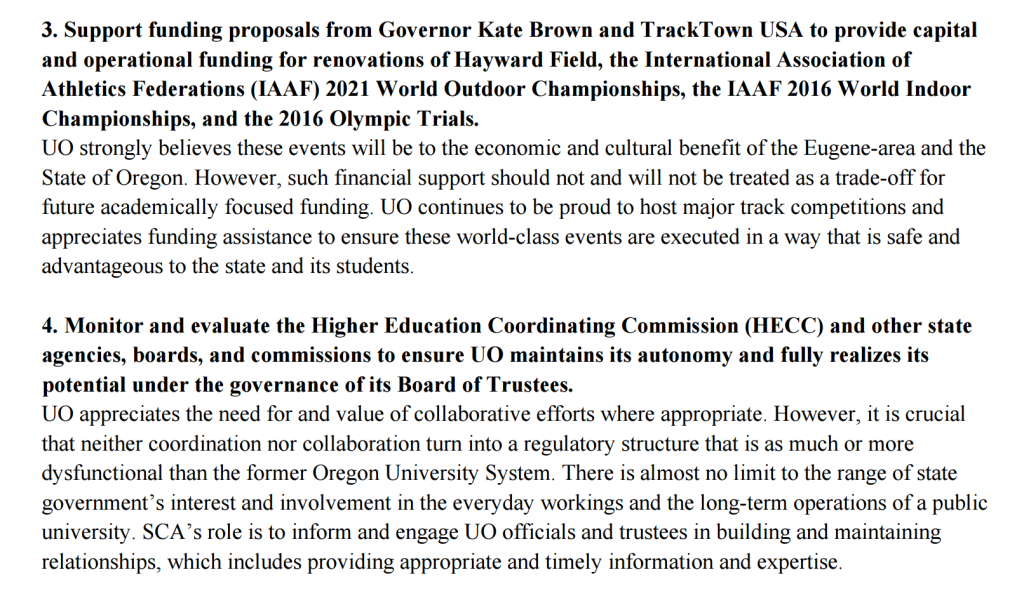
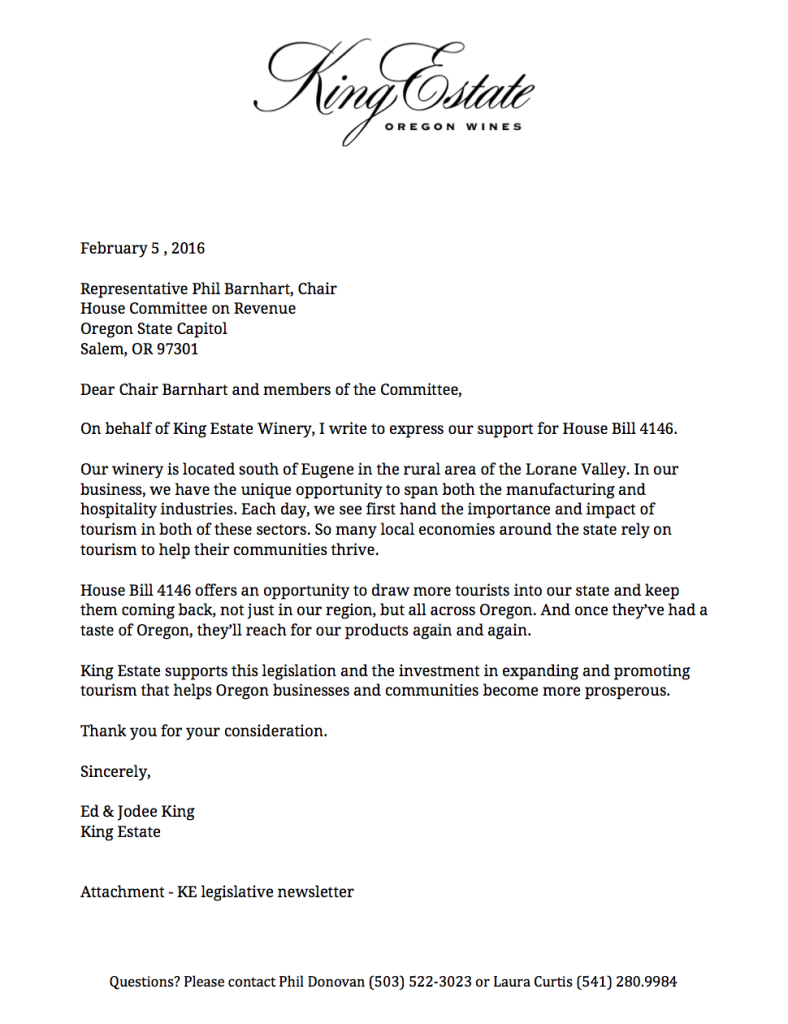
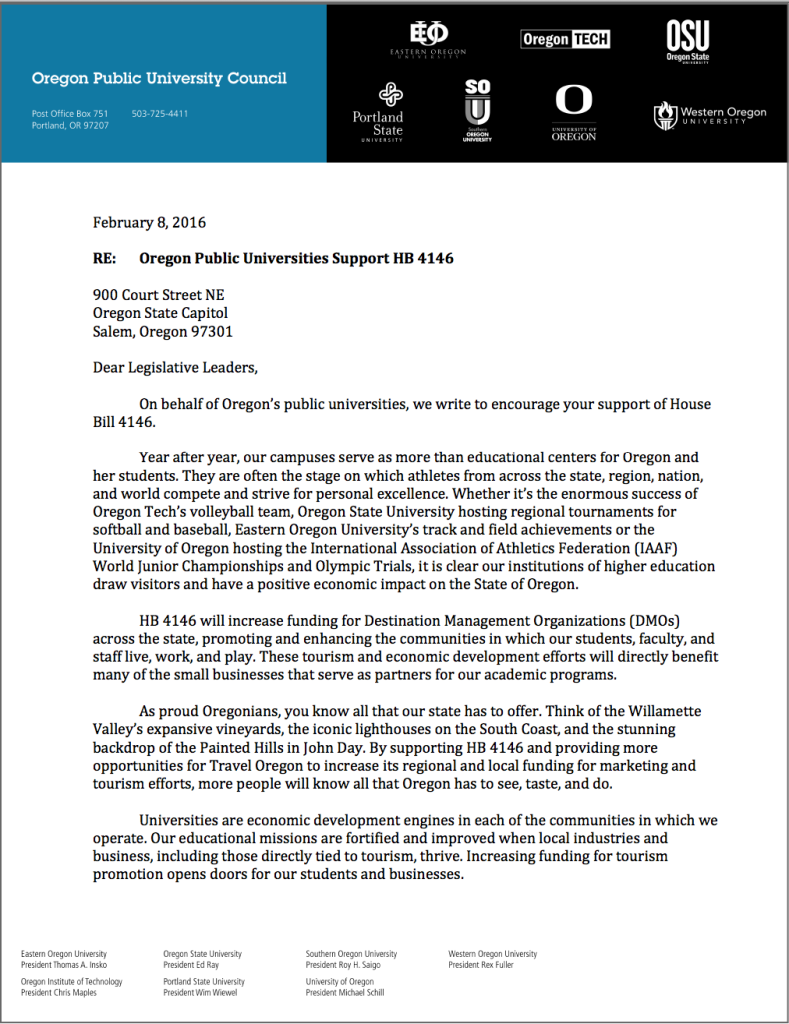
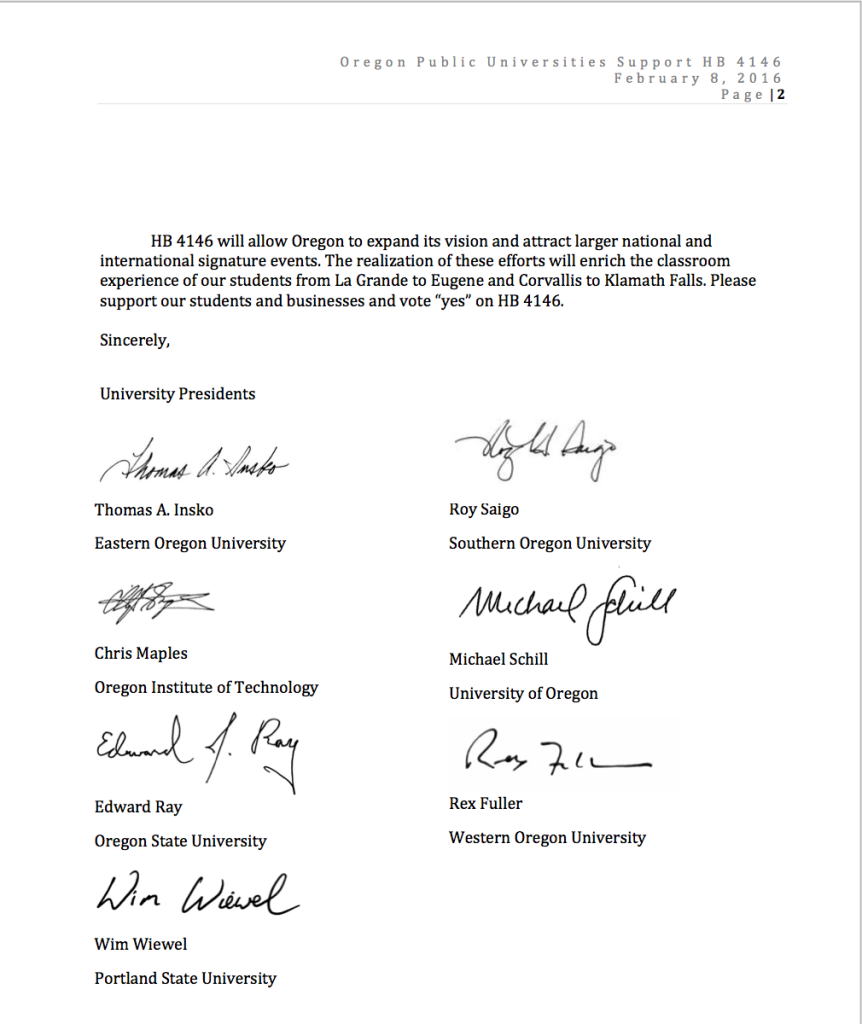
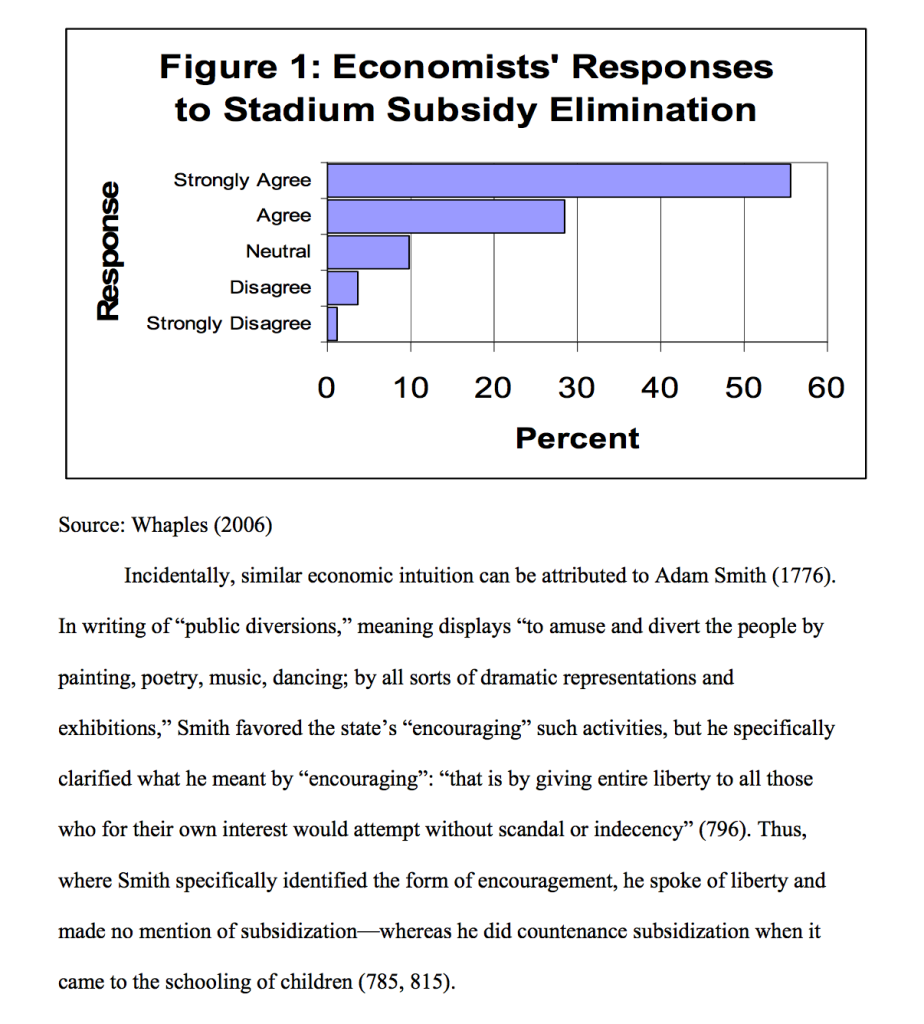
Ed Ray signed because OSU will be a practice facility, which will serve as a bit of a boost for its re-booted track and field program (home of the Fosbury Flop…).
It’s worth noting the measured, carefully placed steps OSU has made in recent years to get track back on the field compared the the big splash, noisy manner UO resurrected baseball.
And they’ve both won the same number of Pac-12 championships. Imagine that.
Word around the Casanova Center is, like with many other sports, Oregon State track and field is that which shall not be named in any capacity. The track team’s only “rivals” are Stanford and schools from the SEC.
Heads UP and NOT RELEVANT
UO Matters has a Birthday Tomorrow
UO matters will be a wise person of 39 years age
In dog years?
Is anyone in Salem really looking closely at this story? Two Russians dead within weeks – sounds like murder to me – it wouldn’t be the first time for the Russians as they have a way of murder that doesn’t outright look like murder (remember the poisoning of Alexander Litvinenko?). Do like any sane person would do and put as much distance between this deal and the UO/State as one can. Don’t let greed get in the way of being a part of this mess!!